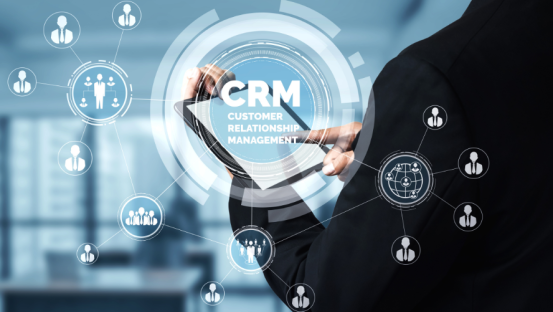Event Management: How to Work Smarter, Not Harder

Event management, a blend of meticulous planning, efficient organization, and smooth execution, is similar to conducting an orchestra where every note counts. This harmonious blend is a crucial determinant in the success of any event, be it a corporate gathering or a grand music festival. Today, "work smarter, not harder" resonates deeply within the event management industry. With the increasing demand for personalized, memorable events, such managers must employ smart strategies to balance the multifaceted nature of their roles effectively.
This article will delve into the importance of efficiency in event management, techniques to achieve this, and innovative tools to elevate your planning and execution. So, let's start orchestrating your masterpiece.
Why Efficiency Matters in Event Management
Efficiency, defined as the ability to accomplish a task with minimal waste of time and effort, is a cornerstone of event management. In this industry, where multi-tasking is the norm and minor details can make a significant difference, efficiency is not just beneficial, it's imperative.
Managing a memorable experience involves juggling multiple responsibilities simultaneously. From liaising with vendors, budgeting, coordinating with speakers, and ensuring attendees' satisfaction, a manager's role in this industry is multifaceted. In such a scenario, efficiency in execution can significantly reduce stress, prevent mistakes, and lead to a successful experience.
The importance of efficiency becomes more prominent when considering the time-bound nature of events. Deadlines are strict, and delays can ripple effects, leading to potential mismanagement. Efficient practices help ensure that every task is completed on schedule, preventing last-minute chaos and ensuring a smooth flow on the actual day of the event.
Moreover, efficiently managed preparations provide a seamless experience for attendees. This leaves them with a positive impression, and increases the likelihood of their participation in your future events, thereby ensuring customer retention and building your brand's reputation.
-
Let's consider the example of the annual South by Southwest (SXSW) conference. It's a mammoth event, hosting a confluence of film, interactive media, music festivals and conferences. Coordinating such a colossal event necessitates a high degree of efficiency. The organizing team applies multiple strategies, such as employing technology for ticketing and scheduling, delegating responsibilities among teams, and maintaining clear communication channels. Their meticulous planning and execution enable them to host a successful event year after year, attracting attendees and performers worldwide.
Summing up this idea, event management efficiency is a top priority when managing events' complexities successfully. It ensures the timely completion of tasks, optimal utilization of resources, and, ultimately, the attendees' satisfaction. Hence, efficiency isn't just about working harder; it's about working smarter to create memorable experiences and sustained success in event management.
Critical Techniques for Effective Event Management
This industry requires practical techniques to streamline processes and ensure successful outcomes. Here, we delve deeper into key strategies that can transform how event managers work, promoting efficiency and productivity.
Prioritizing Tasks
In event management, tasks are plentiful and diverse, ranging from booking venues to coordinating with vendors and promoting the event to the right audience. Given their volume and diversity, it is essential to prioritize these tasks based on their urgency and importance. A popular method for doing this is the Eisenhower Matrix, which divides tasks into four categories: essential and urgent, important but not urgent, not necessary but urgent, and unnecessary and not urgent. This matrix aids event managers in identifying which tasks require immediate attention and which can be scheduled for later, or delegated.
Delegation
Delegation is a critical management skill, given the many responsibilities involved. An effective manager in this industry knows their team's strengths, and assigns tasks accordingly. Delegation not only lightens the load for the manager but also empowers the team members by entrusting them with responsibilities.
Utilizing Technology
Technological advancements have bestowed managers with a wide array of tools designed to simplify their tasks and improve efficiency. From project management tools like Trello and Asana, which allow tracking and updating tasks, to communication tools like Slack and Teams that enhance collaboration, technology plays a significant role in efficient experience management.
Moreover, tools like SignalHire offer specific advantages, like facilitating the search for potential speakers from renowned companies and extracting hidden contact information from LinkedIn profiles. By automating such tasks, these tools free up valuable time for managers to focus on other critical aspects of their work.
Continuous Communication
Given the collaborative nature of event planning, keeping clear and open lines of communication with all stakeholders—team members, vendors, sponsors, and speakers—is crucial. Regular updates, meetings, and feedback sessions can ensure everyone is on the same page, preventing misunderstandings and last-minute surprises.
Risk Management
An often overlooked but vital aspect of event management is anticipating potential problems and having contingency plans. To do that, you need to identify possible risks, evaluate their potential impact, and develop mitigation strategies. This proactive approach can help prevent minor issues from turning into significant problems.
Post-Event Analysis
Conducting a thorough analysis of an event can provide valuable insights for future ones. Consider gathering feedback from visitors, reviewing budget usage, and assessing the success of marketing strategies, among others. These learnings can guide future planning and execution, improving efficiency over time.
Effective management in this industry is a blend of strategic planning, smart delegation, proficient use of technology, clear communication, anticipatory risk management, and insightful post-event analysis. These techniques can equip event managers to work smarter, enhancing their efficiency and ensuring the success of their events.
Event Management Tools: A Comparative Look
The industry has significantly benefited from the influx of technological advancements. A wide array of digital tools now assists event managers in streamlining their tasks, improving efficiency, and delivering successful output. Here, we will compare some of the popular tools.
Project Management Tools
-
Trello: With its card-based system, Trello offers managers a simple to use method to track and update tasks seamlessly, fostering team collaboration.
-
Asana: Similar to Trello, Asana also aids in task management. It, however, offers more advanced features like project timelines and workload view.
-
Nifty: Combining the simplicity of Trello with advanced project management features akin to Asana, Nifty provides a comprehensive platform for task organization and team coordination, making it a strong Asana Alternative.
Event Registration and Ticketing
-
Eventbrite: This platform simplifies the ticketing and registration process, allowing managers to focus on other aspects of their work.
-
Cvent: A comprehensive tool that integrates marketing, online event registration, venue selection, and mobile event apps.
Communication and Collaboration Tools
-
Slack: Slack is a robust communication tool that allows team members to discuss and share updates in real-time.
-
Microsoft Teams: Combines workplace chat, video meetings, and file storage, making it an all-in-one collaboration tool.
Attendee Engagement Tools
-
Whova: Provides networking opportunities, personalized agendas, and interactive event maps.
-
Attendify: Helps to build a community around your experience, promoting networking and engagement.
Speaker Outreach and Networking Tools
-
SignalHire stands out with its capabilities for enhancing networking and outreach. For instance, if you need to search for speakers in Deloitte or another big company, this tool will help you. Also, if you need phone numbers of influential people that can aid your efforts or a tool for email search on LinkedIn when the data is hidden, SignalHire can help you. These features make SignalHire a useful tool for event managers to find and connect with the right speakers for their events.
Closing Tips: Maximizing Efficiency in the Event Industry
Successful management hinges on efficiency. Embrace prioritization to discern and focus on high-impact tasks. Don't hesitate to delegate; it empowers your team and optimizes resources. Lean on technology; digital tools like the ones suggested can simplify speaker outreach and networking, saving time and effort. Maintain clear, consistent communication with all stakeholders to avoid misunderstandings. Always prepare contingency plans; proactive risk management can save the day when unexpected issues arise. Lastly, review and learn from each event to continuously improve your efficiency strategies. Remember, in this industry, working smarter is the key to success.
Final Thoughts
The world of event management demands efficiency and effectiveness to succeed in today's fast-paced environment. Working smarter, not harder, has become the mantra for professionals in this industry. This article explored the significance of efficiency in event management and highlighted critical techniques for achieving it. From careful planning and delegation to leveraging technology and automation, event managers can streamline their processes and maximize productivity. Additionally, we examined various event management tools, offering a comparative analysis to assist professionals in selecting the right ones for their needs.
By adopting these techniques and utilizing appropriate tools, event managers can optimize their workflow, save time and resources, and deliver exceptional events. In this ever-evolving industry, maximizing efficiency is crucial for staying ahead and achieving success.





